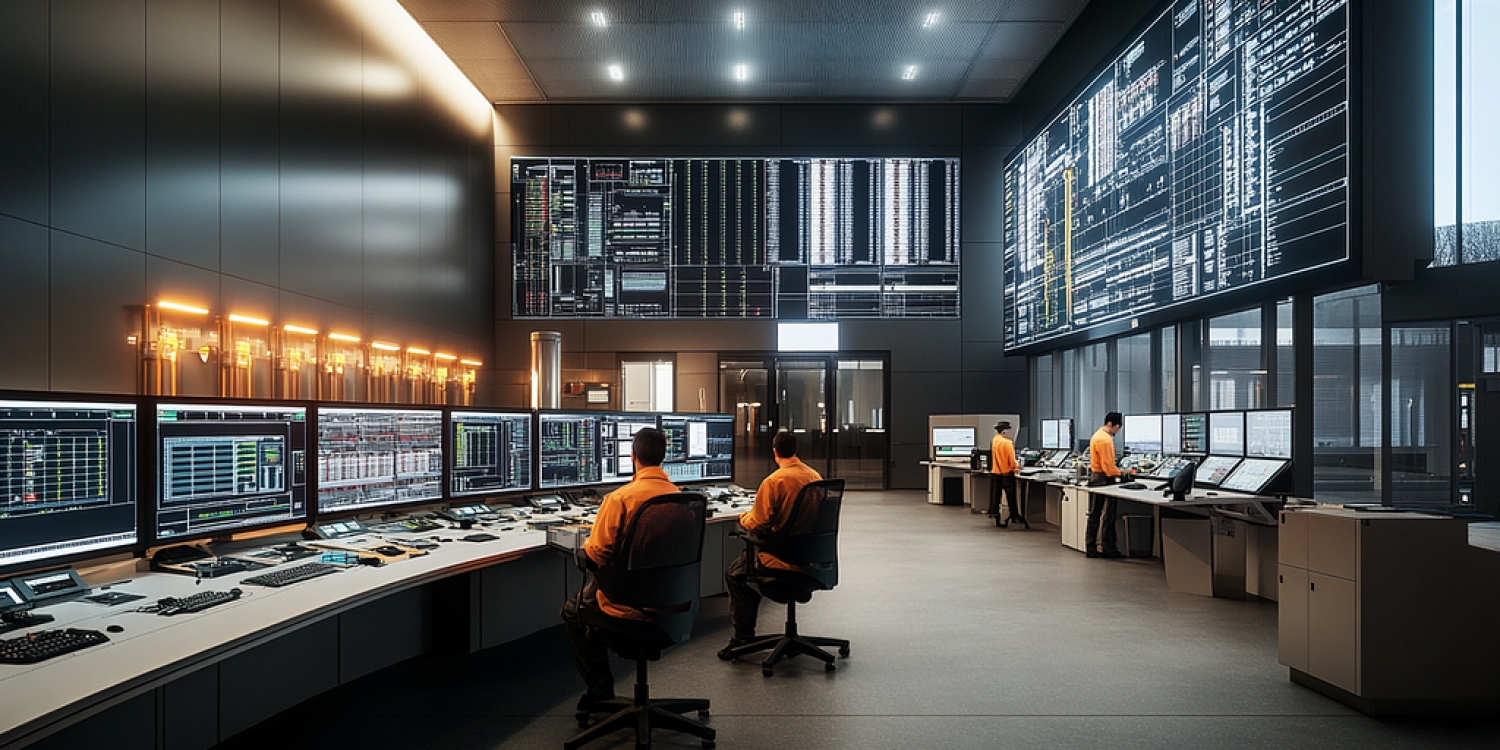
Business Energy Efficiency Tips
Estimated reading time: 10 minutes
Key Takeaways
- Implementing energy-efficient practices can significantly reduce operating costs.
- Adopting sustainable energy solutions enhances a company’s reputation and supports environmental sustainability.
- Conducting regular energy audits helps identify and eliminate energy waste.
- Transitioning to LED lighting and utilizing smart meters are effective strategies for improving energy efficiency.
- Net zero strategies and B2B sustainability initiatives contribute to long-term environmental goals.
Table of contents
- Introduction
- Understanding Energy Efficiency in Business
- Economic and Environmental Benefits
- Industry Statistics
- Best Practices for Reducing Energy Waste
- LED Lighting for Commercial Spaces
- Benefits of LED Lighting
- Implementation Tips
- Sustainable Energy Solutions for Offices
- Key Sustainable Solutions
- Smart Meters for Businesses
- How Smart Meters Function
- Maximizing Smart Meter Use
- B2B Sustainability Initiatives
- Definition and Examples
- Net Zero Strategies for UK Businesses
- Steps Towards Net Zero
- Conclusion
- Call to Action
- Frequently Asked Questions
Introduction
Business energy efficiency refers to using less energy to achieve the same level of productivity, service, or output. This approach enables companies to reduce operating costs while also minimizing their environmental impact. Improving energy efficiency is crucial for businesses because it not only drives down utility bills but also supports sustainability, enhances a company’s reputation, and provides a competitive edge in a market that increasingly values corporate responsibility. This blog post will outline various business energy efficiency tips, along with practical strategies and tools to enhance energy efficiency effectively.
Understanding Energy Efficiency in Business
Energy efficiency is vital for modern businesses due to its dual benefits: economic and environmental. By effectively transforming energy usage, companies can reap significant cost savings while simultaneously contributing to global sustainability efforts.
Economic and Environmental Benefits
- Cost Savings: Adopting energy efficiency initiatives can lead to substantial reductions in operating costs. For instance, small and medium enterprises (SMEs) in the UK typically spend an average of £8,000 per year on energy. By implementing energy-saving strategies, they can cut costs by up to 20%.
- Environmental Impact: Energy efficiency helps in reducing greenhouse gas emissions, a major contributor to climate change. By utilizing less energy to perform the same tasks, businesses decrease their carbon footprint, helping to protect our planet.
Industry Statistics
Research indicates that the implementation of energy efficiency measures can save UK SMEs a remarkable amount. According to sources, businesses can save substantial amounts by adopting sustainable energy solutions for offices and implementing best practices for reducing energy waste.
The significant savings through energy-efficiency measures not only benefit individual businesses but also improve public health by reducing pollution and positioning companies as proactive in addressing climate issues.
Best Practices for Reducing Energy Waste
To effectively minimize energy waste, businesses can adopt a range of best practices:
- Employee Training and Engagement: Educate employees about energy-saving behaviors. Encourage them to turn off unused equipment and optimize HVAC (heating, ventilation, and air conditioning) settings. When staff members understand the importance of their role in energy conservation, they often adopt better practices.
- Regular Energy Audits: Conducting routine energy audits is essential for identifying where energy is being wasted. Hiring a professional consultant can provide businesses with a thorough assessment and tailored recommendations to enhance efficiency. https://www.e2b.uk/commercial-energy-audit-guide-uk
- Scheduling Equipment Use: Energy-intensive equipment should be operated during off-peak hours. This not only takes advantage of lower tariffs but also reduces pressure on the energy grid during peak usage times.
- Optimize Processes: Upgrade office equipment and production technologies to more energy-efficient models. Modern energy-efficient machines often consume less energy while enhancing productivity. https://www.e2b.uk/commercial-energy-efficiency-retrofits
Sustainable Energy Solutions for Offices
Integrating sustainable energy solutions for offices can further bolster energy efficiency. https://www.e2b.uk/commercial-solar-panel-installation-uk-efficiency-sustainability
Key Sustainable Solutions
- Solar Panels: Investing in solar panel installations allows businesses to harness renewable energy. Government incentives are often available, making this option more feasible.
- Wind Energy: For certain urban settings, small-scale wind turbines can provide additional renewable energy sources.
- Energy-Efficient Appliances: Outdated machinery and office equipment should be replaced with energy-efficient models that consume significantly less energy.
These sustainable energy solutions not only reduce reliance on grid electricity but also contribute to companies’ overall efforts to enhance energy efficiency and environmental responsibility. Adopting such systems may also make businesses eligible for various tax benefits or government grants.
Smart Meters for Businesses
Smart meters for businesses play a crucial role in monitoring and managing energy consumption. https://www.e2b.uk/energy-consumption-data-analytics
How Smart Meters Function
- Real-Time Monitoring: Smart meters provide real-time data on energy usage. Businesses can track their consumption accurately and eliminate estimated billing.
- Identifying Waste: With detailed usage data from smart meters, businesses can pinpoint areas of excessive energy use and discover opportunities for improvement.
Maximizing Smart Meter Use
- Set Consumption Targets: Establish specific goals for reducing energy use and monitor progress using smart meter data.
- Review Data Regularly: Regularly analyze energy consumption trends to recognize patterns and identify potential areas for efficiency improvements.
By implementing these practices, businesses can significantly enhance their energy-saving efforts and optimize operational efficiency.
B2B Sustainability Initiatives
B2B sustainability initiatives represent a collaborative approach businesses can undertake to enhance their sustainability efforts.
Definition and Examples
- Joint Procurement of Renewable Energy: Businesses can come together to purchase renewable energy in bulk, reducing costs and enhancing green energy sourcing.
- Industry Collaboration on Technologies: Companies can collaborate to develop or share energy-saving technologies, creating a more sustainable operation from multiple fronts.
Shared approaches among companies not only enhance their individual efforts in energy efficiency but also contribute to a more significant, collective impact in reducing energy consumption and emissions.
Net Zero Strategies for UK Businesses
Net zero strategies for UK businesses entail comprehensive plans aimed at achieving negligible carbon emissions. https://www.e2b.uk/carbon-offset-programs-businesses
Steps Towards Net Zero
- Current Emissions Assessment: Evaluating existing operations to identify emissions levels and improvement zones.
- Setting Reduction Targets: Establishing realistic, science-based targets for emissions reduction.
- Adopting Energy-Efficient Measures: Incorporating strategies discussed in this blog to achieve better energy management.
- Transitioning to Renewable Energy: Shifting operations to utilize clean energy sources.
The UK government supports net zero strategies through various mechanisms, such as incentives and grants, encouraging businesses to align with national climate goals.
Conclusion
Implementing energy efficiency measures not only helps businesses save costs but also strengthens their reputation and aids in combating the pressing climate crisis. By taking practical steps—ranging from upgrading to LED lighting to utilizing smart meters—companies can rapidly improve their energy efficiency and sustainability.
Call to Action
We invite you to share your own business energy efficiency tips or success stories in the comments section. If you’re interested in ongoing insights and practical advice on sustainability in business, subscribe to our blog today! Let’s work together to create a more energy-efficient future for everyone.
Frequently Asked Questions
- What are the most effective energy efficiency tips for businesses?
Some of the most effective energy efficiency tips include conducting regular energy audits, upgrading to LED lighting, optimizing processes, and adopting sustainable energy solutions such as solar panels and smart meters.
- How can energy-efficient practices reduce operating costs?
Energy-efficient practices reduce the amount of energy consumed, which directly lowers utility bills. Over time, the initial investment in energy-efficient equipment and processes can lead to substantial cost savings.
- What role do smart meters play in energy management?
Smart meters provide real-time data on energy usage, allowing businesses to monitor consumption accurately, identify areas of waste, and make informed decisions to improve energy efficiency.
- What are the benefits of transitioning to LED lighting?
Transitioning to LED lighting offers significant energy savings, longer lifespan, and lower maintenance costs compared to traditional lighting solutions. Additionally, LEDs contribute to reducing a business’s carbon footprint.
- How do net zero strategies help businesses?
Net zero strategies help businesses achieve negligible carbon emissions by assessing current emissions, setting reduction targets, adopting energy-efficient measures, and transitioning to renewable energy sources. This not only benefits the environment but also enhances the business’s reputation and can lead to financial incentives.












